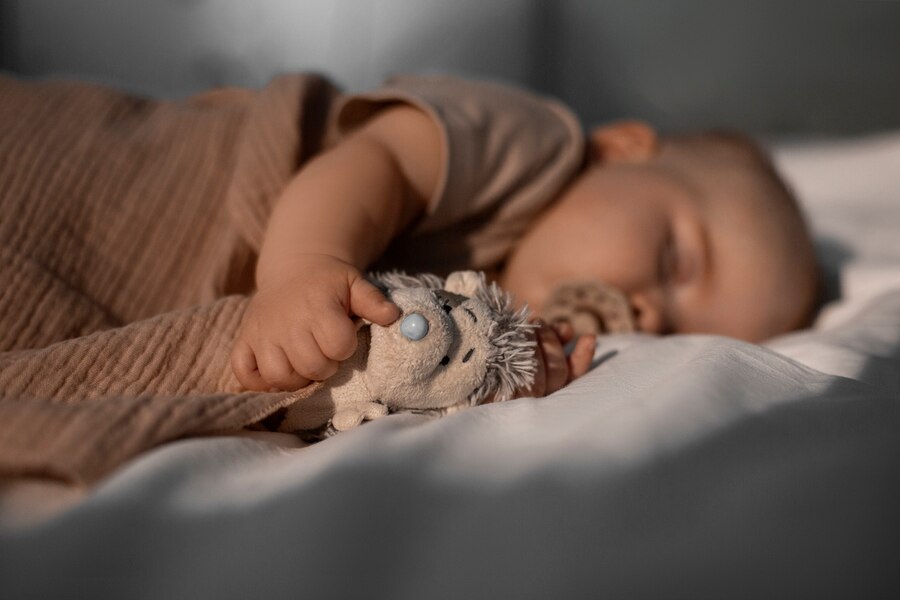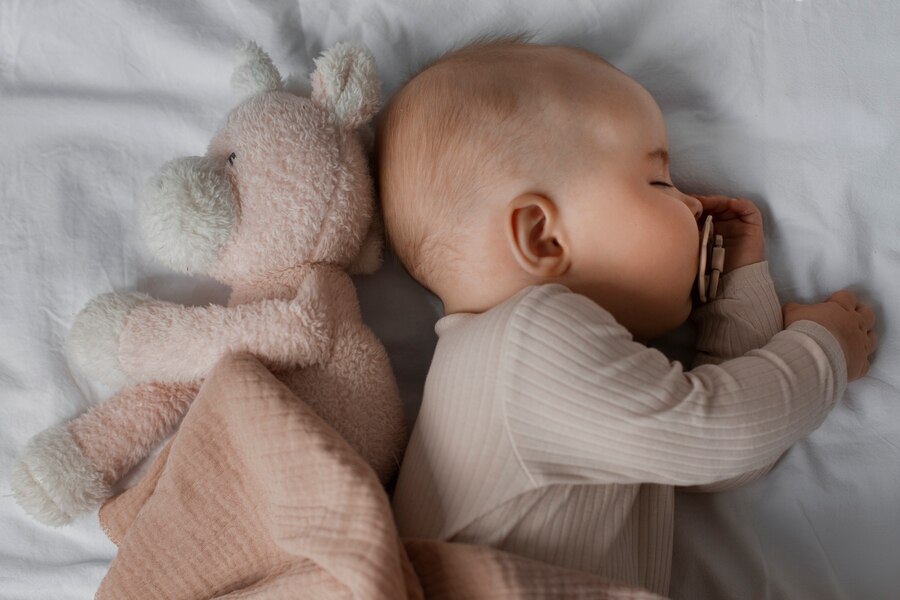Understanding Infant Sleep Patterns
Infant sleep is a complex, evolving process that perplexes many new parents. Newborns typically cycle through periods of sleep and wakefulness around the clock, with their sleep patterns beginning to consolidate into night-time sleep as they grow. Recognizing the nuances of infant sleep is fundamental for parents to discern between normal sleep developments and potential infant sleep disorders.
In the early months, babies’ sleep is predominantly REM (rapid eye movement) sleep, which is necessary for the extraordinary development happening in their brains. As infants mature, the distribution of REM and non-REM sleep changes, mirroring adult sleep patterns more closely.

Common Infant Sleep Disorders
Infant sleep disorders can disrupt this crucial developmental process, affecting both the child and their families. Conditions like sleep apnea, insomnia, and restlessness during the night are more than just minor disturbances; they can have profound implications for an infant’s health and well-being.
Sleep apnea in infants, for instance, is not merely a series of interrupted breathing episodes; it can lead to significant oxygen deprivation and, consequently, developmental delays. Insomnia, though less common in infants, can inhibit their ability to sleep peacefully and consistently, impacting their mood, growth, and overall health.
Signs of Sleep Apnea in Infants
Identifying sleep apnea in infants involves vigilance for symptoms such as irregular breathing, frequent awakenings, and unusual sleep postures. These signs, though subtle, can indicate underlying disruptions in the infant’s sleep architecture and necessitate professional evaluation to prevent long-term deficits.
Recognizing Insomnia in Babies
Infant insomnia might manifest as difficulty in initiating sleep or staying asleep. Parents might notice their baby is unusually fussy, has erratic sleep patterns, or does not seem rested after sleeping. These indicators can prompt caregivers to explore potential causes, ranging from environmental factors to underlying medical conditions.
Other Sleep Disturbances in Infants
Beyond the more commonly discussed sleep disorders, infants may experience other sleep-related issues like restless leg syndrome or periodic limb movement disorder. These conditions, though rarer, can significantly affect a baby’s sleep quality and overall health.
Diagnosing Sleep Disorders in Babies
Accurate diagnosis of infant sleep disorders often hinges on a combination of parental observations and professional assessments. Sleep studies, though not frequently conducted on infants, can be instrumental in diagnosing more severe sleep conditions.
Parental Observation and Reporting of Infant Sleep Disorders
Parents are usually the first to notice changes in their baby’s sleep patterns. Documenting sleep behavior, noting any irregularities, and communicating these observations to healthcare providers are critical steps in diagnosing and treating infant sleep disorders.
Treatment and Management of Infant Sleep Disorders
Managing infant sleep disorders often involves a multi-faceted approach, including environmental adjustments, behavioral strategies, and, in some cases, medical intervention. Tailoring these interventions to the infant’s specific needs can lead to significant improvements in sleep quality and overall development.
Behavioral and Environmental Adjustments
Simple adjustments such as establishing a consistent bedtime routine, optimizing the sleep environment for comfort and safety, and ensuring the baby has opportunities for active play during the day can greatly enhance sleep quality and reduce nighttime disturbances.
Medical Interventions for Severe Cases
In severe cases of infant sleep disorders, medical interventions, including medication or specialized therapies, may be necessary. These measures are typically considered when other strategies have not resulted in significant improvement.
Supporting Your Baby’s Sleep Health
Parents play a crucial role in supporting their baby’s sleep health. Creating a conducive sleep environment, maintaining a consistent routine, and being responsive to the baby’s needs are all practices that contribute to healthy sleep habits.
FAQs: Understanding Your Baby’s Sleep
- What are the normal sleep patterns for infants?
- How can I tell if my baby has a sleep disorder?
- Are there any home remedies for mild sleep disturbances in babies?
- When should I seek medical advice for my baby’s sleep issues?
- How do sleep disorders in infants affect long-term health and development?
- Can dietary changes improve my baby’s sleep?

Conclusion: Ensuring Healthy Sleep for Your Baby
Decoding the complexities of infant sleep and the potential for sleep disorders is crucial for every parent. By staying informed and proactive, parents can ensure that sleep disorders are identified and addressed promptly, paving the way for healthy sleep habits that support their infant’s growth and development.
Dive deeper into Signs of Infant Sleep Disorders by clicking: “Bedtime Routine Mastery: A Guide for Babies, Toddlers, and Pre-Schoolers”, where you’ll learn EVERYTHING you need to know.
Follow us